John Andrew Fredrick has written two of the best but most under-sung books on rock music with ‘The King of Good Intentions’ (2013) and its sequel, ‘The King of Good Intentions II’ (2016). The first volume tells of the formation of a Los Angeles indie rock band The Weird Sisters, and the blossoming romance between its vocalists and guitarists, John, who is a substitute teacher by day, and the sweet-natured Jenny, who was a child classical music prodigy. As the Weird Sisters gets their big break, playing a prime slot at a music festival and looking set to sign a deal, John’s one-time unfaithfulness with the aloof Sarah, who he met in a friend’s record store, is discovered by Jenny. The second book, which is almost twice the length of its predecessor, is a much more experimental work. It finds John and Jenny’s relationship having survived and The Weird Sisters returning to Los Angeles after a sparsely attended tour on the day that Kurt Cobain’s suicide is announced. It opens with a long 70-page passage which reflects on the many bands hat flock to L.A. ,and throughout it is interspersed with lengthy monologues from some of the characters The Weird Sisters encounter, including their UFO-obsessed label boss, the Latin American leader of a rival group and a bragging former A & R man turned wannabe indie record company boss. As ‘The King of Good Intentions II’' draws to a conclusion, John, who has abandoned teaching between the two books, gets a job as a PA on a metal band’s bizarre video shoot where he finds himself attracted to another member of the crew. Both books are very funny, capturing the frustration, absurdity and sometimes ecstasy of being in an indie band, but Fredrick has a lot of experience of this. He has fronted since 1987 and is now the only original member of Los Angeles cult indie group, the black watch (always lower case). They have never achieved wide sales, but have an obsessive, hardcore following and have received much critical acclaim, including with both their 2020 albums ‘Brilliant Failures’ and ‘Fromthing Somethat’ winning joint Albums of the Year in the influential American magazine, ‘The Big Takeover’. The group’s 21st album ‘Future Strangers’ will be released next year on ATOM Records. Fredrick has also published two other works of fiction, ‘The Knucklehead Chronicles’ (2008) and ‘Your Caius Aquila’ (2017) as well as a book of film criticism, ‘Fucking Innocent: The Early Films of Wes Anderson’. Pennyblackmusic spoke to John Andrew Fredrick about ‘Future Strangers’, songwriting and ‘The Kings of Good Intentions’ series. PB: The black watch has never met with massive fame, but you have kept the band going in various line-ups for thirty-five years and have recorded over twenty albums. Why do you think that you have achieved such durability? JAF: I reckon that it is because we are kind of bloody-minded about the whole thing and sometimes amused and sometimes bemused about our relative obscurity. It has become almost like an ongoing joke because we have got so much flattering press and have a very hardcore group of well-wishers. I love writing songs and I write something every day on the guitar, which has been incredibly pleasurable amidst the frustrations that every band experiences, especially on an indie level. PB: Do you think you have lasted so long because you have not become famous and not gone through all the destructive stuff that goes with fame? JAF: That is quite possible. Many if not legions of my acquaintances who were on major labels in the ‘80s or ‘90s have just given up in frustration, having had their shot at the big time. I never started a band in order to become rich or famous, and my tag-line on that is that I have succeeded admirably in both (Laughs). I am neither rich nor famous and am in smallish indie circles. I wonder if a major label deal – we were on a mini major in the ‘90s - would have spelled the ruination of the band because people do become terribly jaded and disheartened sometimes when too many voices and too much money gets involved. PB: One of the good things about being in your band must be that you have always done what you wanted to do…. JAF: I think that is very true. We also don’t necessarily look back. I am working on a new EP now and have got two songs finished, which are very strings-orientated and quiet, and then there are going to be other tracks which are poppy and uptempo songs. I always try and react against the last thing that I have done, to do something different. It remains a thrill for me to make something out of nothing. I am still a kid about that. I am just the least jaded person about my own music. That is for sure. PB: In what kind of way is this forthcoming album ‘Future Strangers’ a reaction to the last album, ‘Here & There’? JAF: ‘Here & There’ was done with four people in a room as a band record, and ‘Future Strangers’ was done rather piece meal with me laying down the tracks acoustically and then bringing in various people. I couldn’t say it was more personal, but it was just about me with my acoustic or electric guitar, mapping out things first, and doing variations on poppy or jangly, or sometimes quiet acoustic and then bringing them to other people. PB: Was this record affected by the pandemic? JAF: Yeah, I seized upon that as a gregarious person. I have a heap of friends but they were all in their own lockdown too. Los Angeles is often described as being filled with superficial people who are just Instagram kind of bands, but I know so many brilliant and talented people here that I don’t see very often because they are off doing their stuff. The pandemic was really fruitful for me because no one was able to socialise which was fine, so I spent the time writing which I often do, but it just seemed like I had heaps more time to try to work out new songs, so I did benefit from that. There were a couple of months where I went “Nothing matters Nothing seems worth doing. The world just seems impossibly bleak.” I was depressed, but out of depression or jubilation comes songs. When things are going on an even keel, I don’t feel terribly inspired. I write when I am happy or down in the doldrums. PB: What are your main musical influences? JAF: I never stop going back to The Beatles. They wrote some of my favourite songs, and I take it as a gauntlet to go, “Okay, I am going to try and write a song as good as ‘Dear Prudence’.” I am going to fail naturally, but, goddamit, I am going to try (Laughs). They are such a constant source of inspiration. Rob Campanella, one of our producers and who is in the band, always says, “I never think that you guys sound like the Beatles.” We are not necessarily one of those bands that lift riffs from ‘Magical Mystery Tour’, but it is an over-arching thing, I think. PB: Who is in the black watch right now? Does the band have a revolving line-up depending upon who is available? JAF: Yes, I have the fortune or misfortune of being in a band with people who have their own thing. Andy Creighton, who has been in the band for six or seven years and plays guitar, is a very, very talented songwriter in his own right, as was Stephen Schayer who was in The Chills and the black Watch for six years in the mid-2000s, as was Scott Taylor who played bass for us for ten years or more and also had his own band. Rob Campanellla, who is our current bassist, and whose brother Andy also plays drums for us, has his very Byrdsian band called The Quarter After, who put out a couple of records in the ‘90s. So, I have to allow space and time for those guys to do their own thing, which I always try to encourage and be supportive of, because they have contributed so much to my music. It is very kind and generous of them to work with me, and we are all great friends. I have never fired anybody. People have quit in the past. It is the sort of thing where you say, “Okay, go and do what you have to do,” which is fine. PB: Do you see yourself as a writer or a songwriter first of all? JAF: The books have come at times in which we have had to go on hiatus because of people being in other bands. I am a lot more jaded about the book industry than I am about the music industry, not withstanding all of its diabolical facets in the music industry and how depressing it can be, but I think that the book industry is much worse. I am not writing a book right now because I don’t really have an idea, and my joke of late has been “I thought of writing an autobiography, but I am not really interested in the subject” (Laughs). PB: It took you over fifteen years to get the first volume of ‘The King of Good Intentions’ finally published? It was originally due to come out in 1997 but did not finally emerge until 2013. Why was there such a long delay? JAF: It was accepted by three different publishers and after they accepted it they changed their minds. It is so much more difficult to write prose than it is to write songs. I wrote my first novel when I just got out of graduate school. I wrote a five hundred page book about the year that I spent in England after I left college, and I gave up on it, realising that it was utterly plotless. I can write four songs in the time that it takes me to write one page of prose, but it has got easier as it has gone along. I used to agonise over it. I still agonise, but I used to agonise over every sentence, over every word. I would spend six or seven hours on just four sentences. These days I have written so much fiction now that it has got easier as it goes along. PB: The two volumes of ‘The King of Good Intentions’ are very different from each other. The first volume has quite a tight plot. The second volume does not have as much plot but it goes into these long character monologues and it opens with the lengthy opening passage on the type of people who come to Los Angeles to join bands. Why did you choose to make the second volume more abstract? JAF: I don’t think that I decided to do it. I think that I write mostly from the unconscious. I write to discover what is going to happen. With the first book things just fell into place. In the case of ‘The King of Good Intentions II’, this is going to sound terribly grandiose, but I tried to do a Dickensian view, taking in all of the Los Angeles music scene and all of the Hollywood nonsense and to look at my city and do an almost panoramic view. It is not for everyone. Even people who are in my own family who are big readers and big boosters of my work go, “We loved the first ‘King’ but the second one you went on these rants” (Laughs). PB: The first volume is much more optimistic, catching the enthusiasm of this band. By ‘Volume II’ they have got a lot more jaded. They are mucked around by their label. They play to tiny crowds. Did you intend it to be so much darker? JAF: I don’t know. I am not sure that was my intention for ‘The King of Good Intentions II’ to present a darker view. I think darker things are often terribly funny. Ask Woody Allen the filmmaker about something like that. He looks at the dark side and finds humour in it. I just wanted to carry it further and maybe say something about how bands encounter things they never dream of. The cliché that they tell bands is that once they get a record deal the real work starts but it is true. It comes as a great shock to bands. They go, “Oh my God! This is where the really hard part is.” Maybe that is what I was trying to convey. I am not sure. PB: There have been pointers that there might be a volume three. Do you intend to publish a third volume? JAF: I don’t think that is up to me. I have written a third part and a very HItchcockian thriller about a couple who get together out of their love for My Bloody Valentine, so I have two unpublished novels in my drawer at the moment, as well as a musical about Boswell and Johnson, but II don’t think in the present climate they will be published. I just had a UK publisher who I thought was going to pick up on my thriller but they rejected it in the end. I think that it is very hard for authors who haven’t experienced great success. This is one of my reasons for my cynicism for the book industry. They don’t want to take on writers who are middle-aged, straight, Caucasian males, which is lamentable because it doesn’t have anything to do with the quality of the work. I would love to find someone to publish both books, and part three which is even darker in a comic way than part two. I am not a quitter. I don’t give up, but I think that I am going to throw in the proverbial towel at this stage. I have been trying for five years to get the one which is a thriller about the My Bloody Valentine obsessed couple published. I think that it is the best thing that I could ever do. IT is very tight. It is very suspenseful, and it is funny as well. I have tried everyone and can’t think of anyone else to put it out. PB: What are your plans for the immediate future? JAF: We are still waiting on the vinyl for ’Future Strangers’. There is such a glut of bands having their stuff pressed on vinyl,and the major labels putting out Adele’s stuff and Madonna’s stuff that will I imagine gum it up even more, but the publicist is very excited about it. The label is very excited about it. Hopefully the distributor will be as well, and it may gain us the same amount of attention that we have got in the past as all the ones we have done so I am hoping for the best, PB: Thank you.
Band Links:-
https://www.facebook.com/theblackwatchmusichttps://theblackwatch.bandcamp.com
Play in YouTube:-
Picture Gallery:-
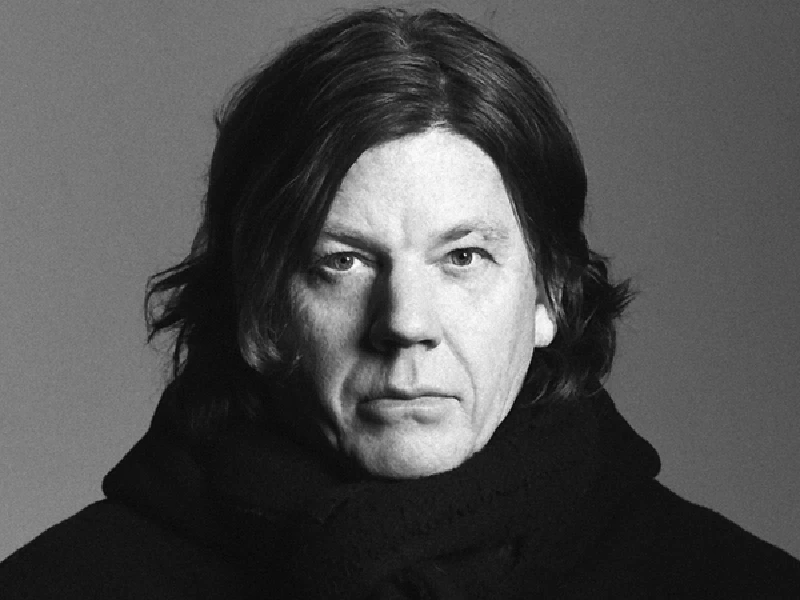
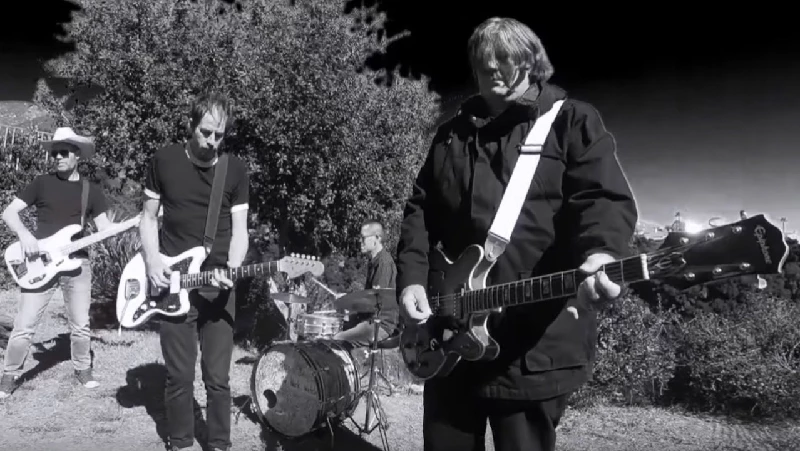
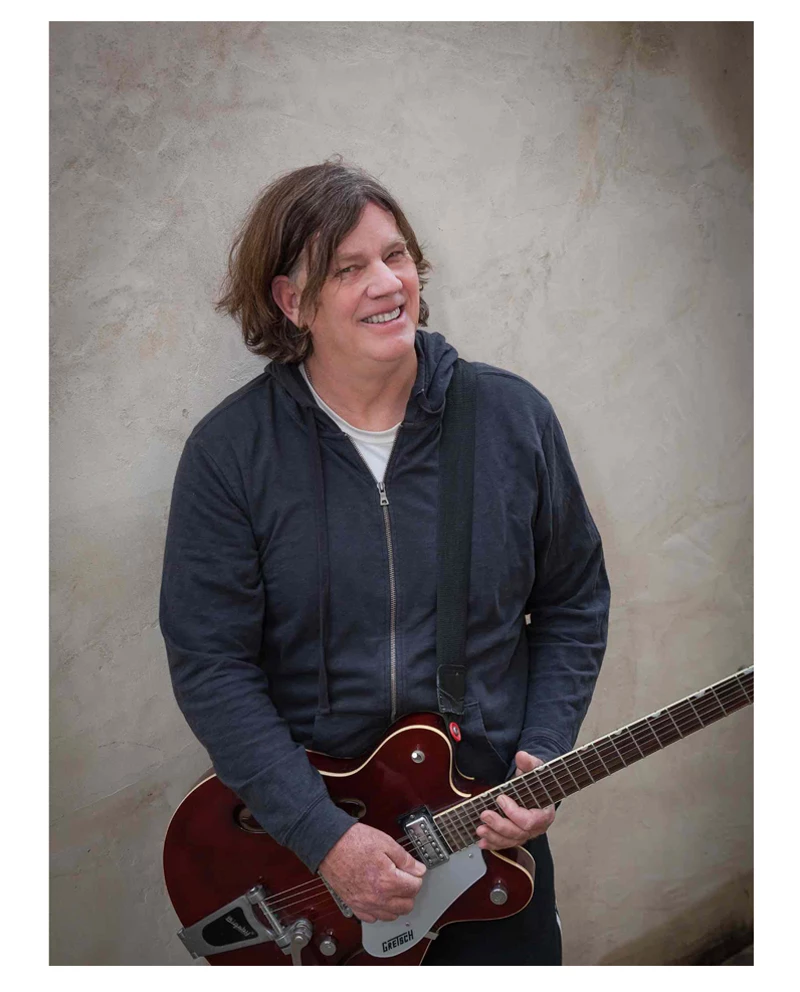
intro
John Andrew Fredrick, the frontman with Los Angeles indie rock band the black watch, talks to John Clarkson about his band's forthcoming album 'Future Strangers', songwriting and his two novels on rock music, ‘The King of Good Intentions’ and its sequel ‘The King of Good Intentions II’.
interviews |
|
Interview (2025) |
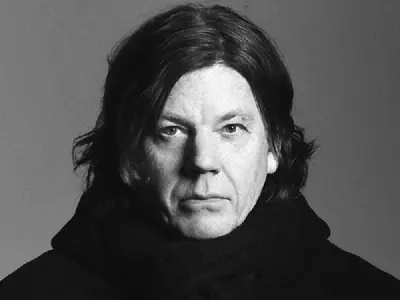
|
| John Andrew Fredrick, the frontman with Los Angeles indie band the black watch, speaks to John Clarkson about his group’s 25th and new double album, ‘For All the World' |
| Interview with John Andrew Fredrick (2024) |
reviews |
|
The Hypnotizing Sea (2007) |
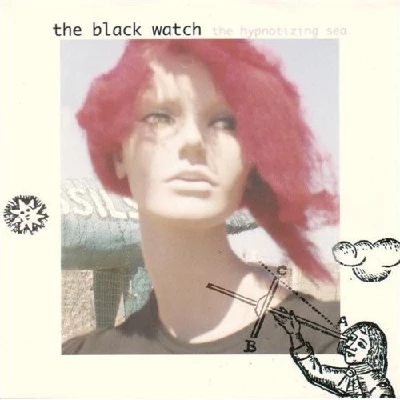
|
| Intelligent and witty indiepop on the latest album from the Black Watch, the moniker for Californian musician John Andrew Frederick |
most viewed articles
current edition
Carl Ewens - David Bowie 1964 to 1982 On Track: Every Album, Every SongArmory Show - Interview with Richard Jobson
John McKay - Interview
Colin Blunstone - Thalia Hall, Chicago, 16/7/2025
Bathers - Photoscapes 1
Billie Eilish - O2 Arena, London, 10/7/2025
Loft - Interview
Visor Fest - Valencia, Spain, 26/9/2025...27/9/2025
Sir Tim Rice - Interview
Robert Forster - Interview
previous editions
Manic Street Preachers - (Gig of a Lifetime) Millennium Stadium, Cardiff, December 1999Heavenly - P.U.N.K. Girl EP
Beautiful South - Ten Songs That Made Me Love...
Peter Perrett - In Dreams Begin Responsibilities Interview Part One
Boomtown Rats - Ten Songs That Made Me Love....
Oasis - Oasis, Earl's Court, London, 1995
Coldplay - Wembley Arena. London, 16/8/2022
Prolapse - Interview
Trudie Myerscough-Harris - Interview
Pixies - Ten Songs That Made Me Love...
most viewed reviews
current edition
Davey Woodward - Mumbo in the JumboSick Man of Europe - The Sick Man of Europe
Lucy Spraggan - Other Sides of the Moon
Amy Macdonald - Is This What You've Been Waiting For?
Suzanne Vega - Flying With Angels
Blueboy - 2
Bush - I Beat Loneliness
Phew, Erika Kobayashi,, Dieter Moebius - Radium Girls
Alice Cooper - The Revenge of Alice Cooper
Cynthia Erivo - I Forgive You
related articles |
|
: Interview (2025 |
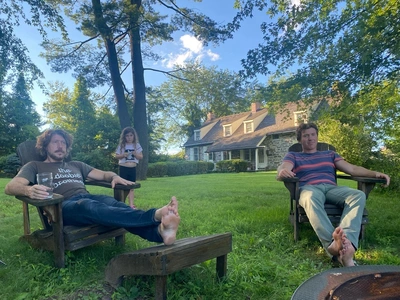
|
| Los Angeles-based brothers and muiti-instrumenralists, Andy and Rob Campanella, about their project Simian Life and its psychedelia, folk and pop-influenced debut album, ‘Hermetic Tonal Briefing’. |
Pennyblackmusic Regular Contributors
Adrian Janes
Amanda J. Window
Andrew Twambley
Anthony Dhanendran
Benjamin Howarth
Cila Warncke
Daniel Cressey
Darren Aston
Dastardly
Dave Goodwin
Denzil Watson
Dominic B. Simpson
Eoghan Lyng
Fiona Hutchings
Harry Sherriff
Helen Tipping
Jamie Rowland
John Clarkson
Julie Cruickshank
Kimberly Bright
Lisa Torem
Maarten Schiethart